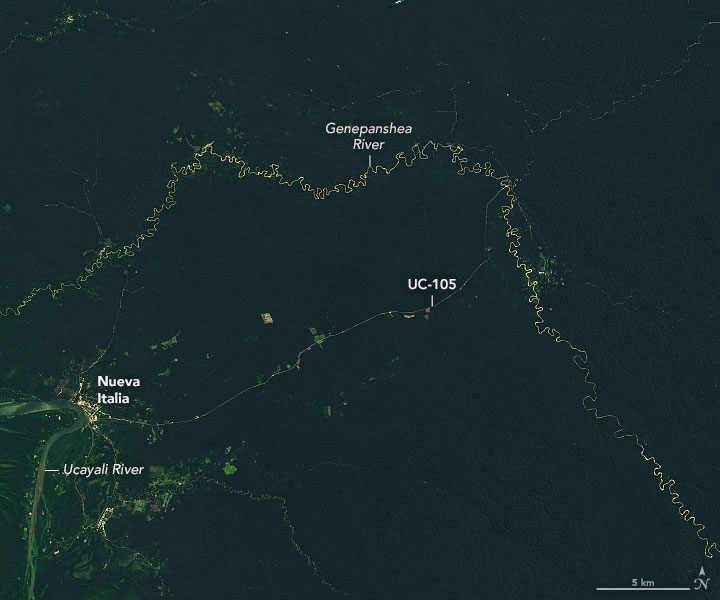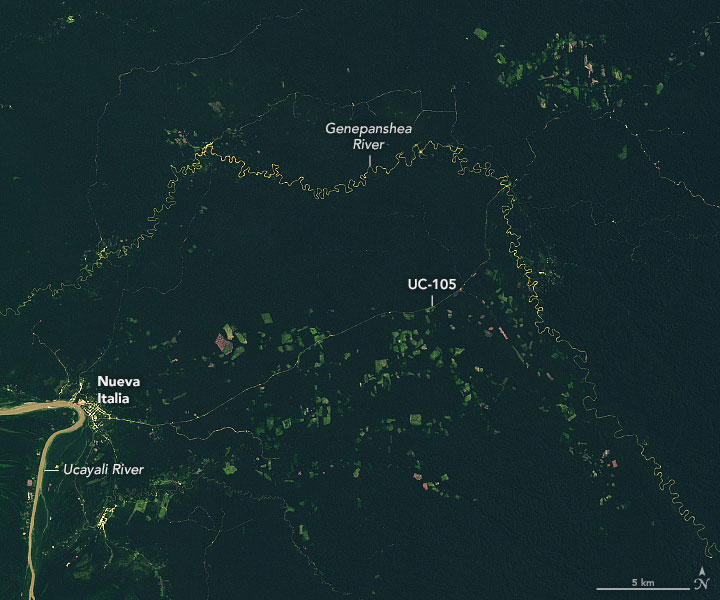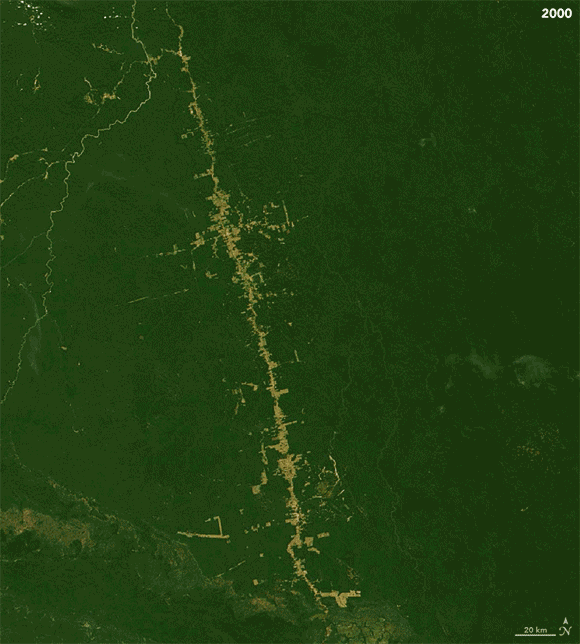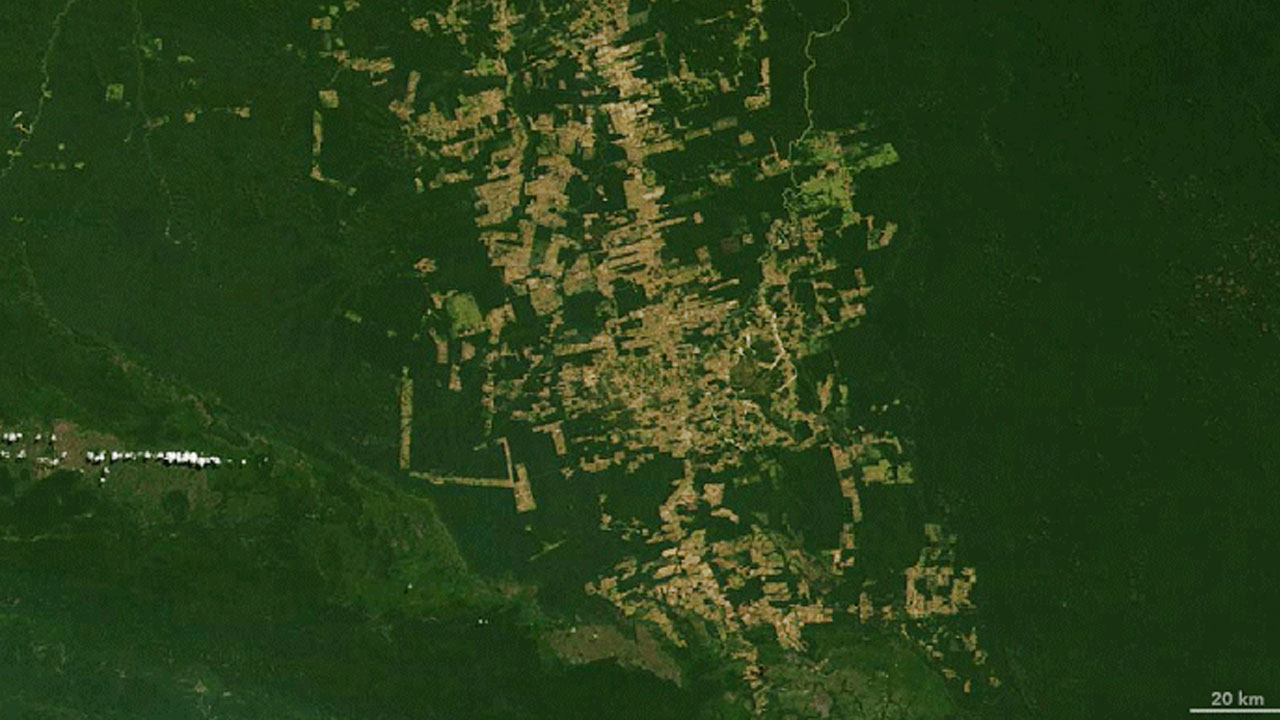Deforestation surges in many countries
One of the key moments at the COP26 climate meeting in 2021 saw over 100 world leaders sign the Glasgow Declaration on forests, where they committed to work collectively to "halt and reverse forest loss and land degradation by 2030".
New research reveals that a vast expanse of tropical forest equivalent to Switzerland was lost in 2022, hindering global efforts to end deforestation. Brazil’s destruction leads, but positive progress in Indonesia offers hope.
Overall the total global tree loss, declined by 10% in 2022, because of fewer fire-related losses — non-fire losses increased slightly by less than 1%.
One of the main COP26 climate meeting results in 2021 was the Glasgow Declaration on forests, signed by over 100 world leaders, where they committed to work collectively to “halt and reverse forest loss and land degradation by 2030”.
The forest loss data for 2022 shows that Brazil dominates forest destruction, in contrast to a sharp reduction in forest loss in Indonesia, showing that progress towards the goal to preserve the remaining forests on earth is achievable.
Tropical Forest Loss by Country (Global Forest Watch 2022)
Brazil leads the forest destruction, with an increase by over 14% in 2022. In Amazonas state, which is home to over half of Brazil’s intact forests, the rate of deforestation has almost doubled over the past three years.
The loss of tropical primary (old-growth) forests in Brazil, Congo, and Indonesia contributes to global warming and biodiversity loss, in turn threatening the livelihoods of millions of people.
Scientists caution that the invaluable “ecosystem services” provided by these ancient forests cannot be replicated by simply planting trees elsewhere.
The new data from the University of Maryland reveals a disturbing trend: the tropics saw a 10% increase in primary rainforest loss in 2022 compared to the previous year – over 4 million hectares were destroyed or burned.
In the process an equivalent of the annual fossil fuel emissions (carbon dioxide) of India are released into the atmosphere.
“The question is, are we on track to halt deforestation by 2030? And the short answer is a simple no,” said Rod Taylor from the World Resources Institute (WRI) which runs the Global Forest Watch.
“Globally, we are far off track and trending in the wrong direction. Our analysis shows that global deforestation in 2022 was over 1 million hectares above the level needed to be on track to zero deforestation by 2030.”


Hope on the horizon
Despite the concerning overall situation, Indonesia has made significant progress in curbing deforestation. Together government and corporate efforts have contributed to a reduction in primary tropical forest loss.
In 2019, a permanent moratorium on logging in new palm oil plantations was established, alongside increased measures to monitor and control fires.
Malaysia, like many other countries, is witnessing positive changes in the oil palm industry. Around 83% of palm oil refining capacity is now committed to no deforestation, no peatland, and no exploitation practices.
Bolivia’s decision not to sign the Glasgow Declaration impacted its forest losses, which surged by almost a third in 2022 due to commodity agriculture, particularly soybean expansion, nearly one million hectares of deforestation was caused by this practice since the year 2000.
Even when Ghana in West Africa has only a small amount of primary forest remaining, in 2022, losses surged by 71%, mostly n protected areas, some near cocoa farms.

How is deforestation measured?
With satellite images tree cover can be monitored relatively easy, sometimes pinpointing the precise year in which trees have been lost can be difficult.
Sources
- WRI Forest Pulse: The Latest on the World’s Forests (Accessed June 29th, 2023)
- BBC Climate change: Deforestation surges despite pledges (Accessed June 29th, 2023)
- NASA Making Sense of Amazon Deforestation Patterns (Accessed June 29th, 2023)
- NASA Deforestation Follows a Road Through Ucayali (Accessed June 29th, 2023)
Related
- The Guardian: A visual guide to deforestation in Brazil’s Amazon rainforest
- The National Archives (UK) Glasgow Leaders’ Declaration On Forests And Land Use (Accessed June 29th, 2023)
